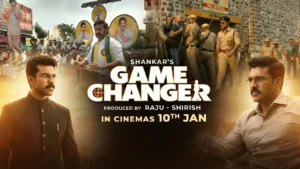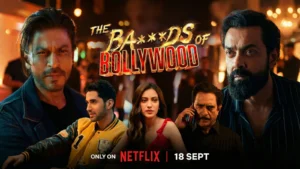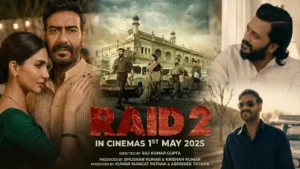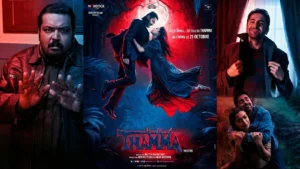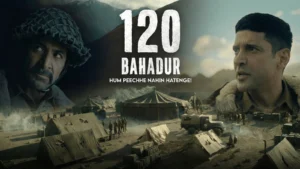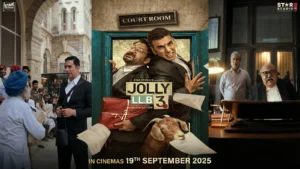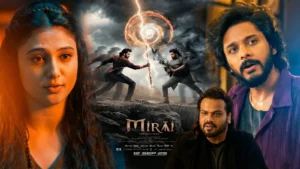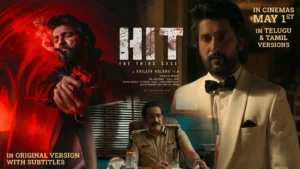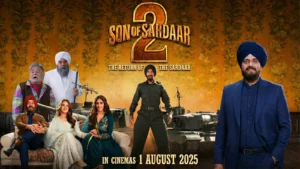Every film deserves a fair chance, irrespective of the director’s stature or reputation. Whether it is crafted by a master filmmaker like Martin Scorsese or someone far less revered, the essential questions for me remain the same: Why was the film made? What purpose does it serve? Who is the target audience? What intention drives the makers? A film not designed for a particular viewer demographic cannot be condemned simply because I am not the intended recipient. If a film is made for a specific group – particularly for a female audience – then dismissing it solely because it does not align with a male viewer’s sensibilities is unfair.
However, there are occasions when, despite my best efforts to remain objective, I exit the theatre pondering not the film’s intention but my own unfortunate decision to buy a ticket. Mastiii 4 is one such film. After watching the newest entry in this long-running adult-comedy franchise, my internal philosophical monologue became nearly unavoidable.
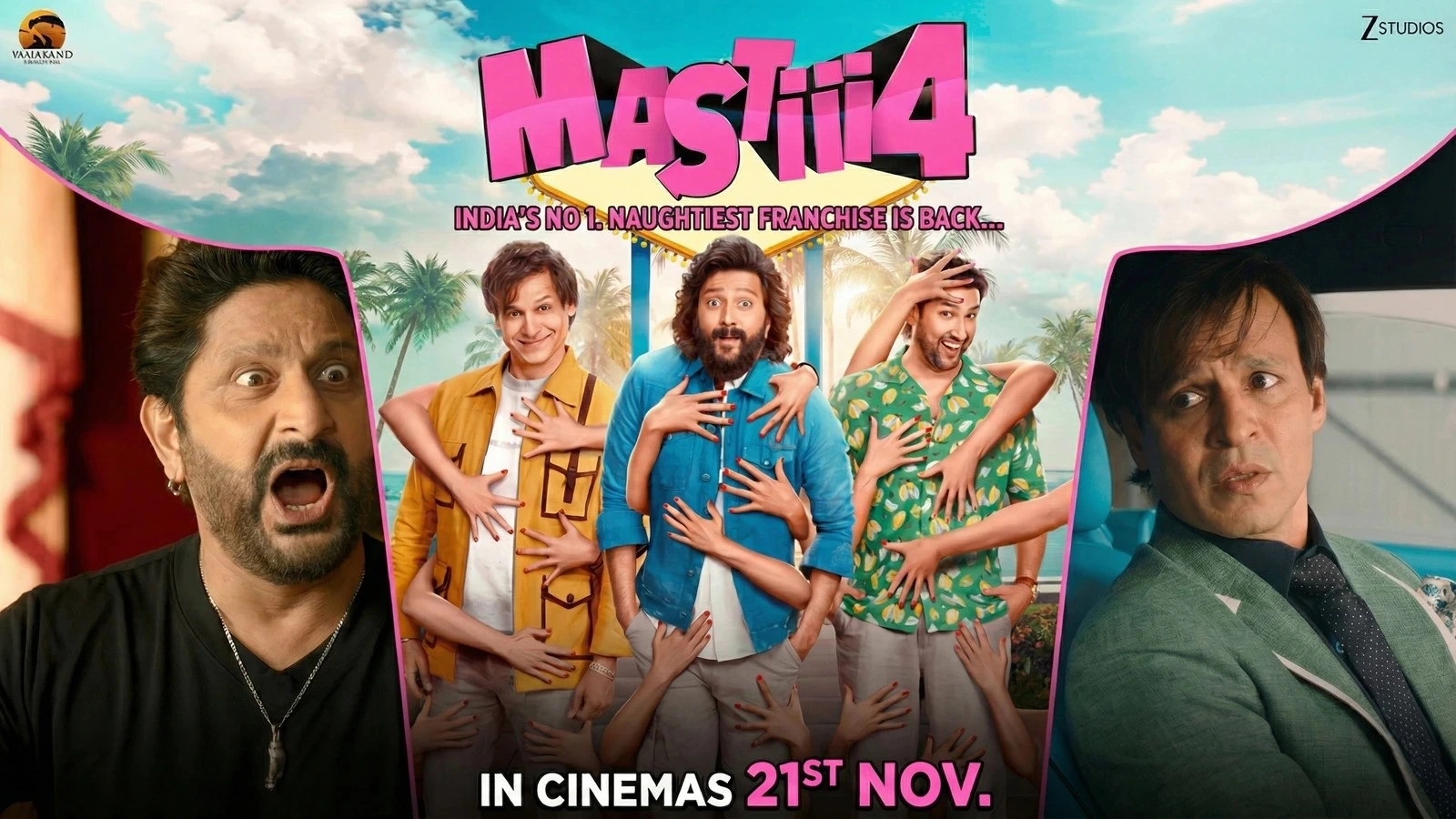
A Franchise Returns: From Masti to Mastiii 4
The Masti series has evolved – or devolved – over the years. Beginning with Masti, transitioning to Grand Masti, then Great Grand Masti, and now landing at Mastiii 4, the franchise has consistently banked on risqué humor, marital chaos, double entendres, and outrageous comedic setups. The pattern has been predictable, but what once felt daring to me when I was younger now feels formulaic to a fault.
Mastiii 4 arrives with an 18+ certification and continues in the same thematic terrain: three married men, three troubled lives, and a belief that marital dissatisfaction can be remedied through dubious adventures. This time, the film attempts to modernize its premise through a concept called the “Love Visa,” which briefly injects novelty – but only briefly.

- A Franchise Returns: From Masti to Mastiii 4
- Plot Overview: When Marital Troubles Seek an Outlandish Escape
- An Underwhelming First Half: A Story That Collapses Under Its Own Premise
- The Decline of Franchise Humor: Outdated Gags in a Modern Landscape
- Comedy That Misfires: A Genre Mistaken for Mindlessness
- Performance and Writing: A Case Study in Missed Potential
- Execution Flaws: Editing, Sound Design, and Direction
- A Personal Turning Point: When I Walk Out
- The Bigger Picture: Who Is This Film For?
- Conclusion: A Franchise in Desperate Need of Reinvention
- Related Movie Reviews
- Rate this movie
Plot Overview: When Marital Troubles Seek an Outlandish Escape
The central plot revolves around three protagonists who are suffocating in unhappy marriages where affection has faded and arguments dominate daily life. Their dissatisfaction pushes them to seek excitement outside their marital boundaries, hoping to rediscover the thrill they once shared. Their pursuit takes a turn when they encounter a fourth man – portrayed by Arshad Warsi – who appears to have cracked the code to marital happiness. His life, in sharp contrast to theirs, is perfect: an affectionate wife, stability at home, and a seemingly flawless relationship.
It is at this juncture that the film introduces its central novelty: the “Love Visa.” According to this fourth character, couples can strengthen their marriages by granting each other a seven-day annual visa for unrestricted freedom – the implication being far from subtle. The husbands jump at the opportunity, but fate grants them no such luck. After a prolonged song sequence that substitutes for actual narrative progression, they return empty-handed, defeated by their inability to find any adventure worth their newfound liberty.
The twist arrives when they discover that modernity has equalized marital permissions. If husbands receive a seven-day Love Visa, then wives must too. Suddenly, the tables turn. The wives now have the freedom to explore, and the men must grapple with the insecurity of their failed experiments. This shift forms the basis of the second half and the symbolic interval point in a film that spans 2 hours and 20 excruciatingly long minutes.
An Underwhelming First Half: A Story That Collapses Under Its Own Premise

The narrative struggles from the outset. By the midpoint of the film – roughly at the 1 hour 10 minute mark – I realized there was hardly any substantial progress. What could have been the film’s comedic backbone – the husbands’ seven-day adventure – is squeezed into a single extended song, leaving the first half barren of narrative energy. Instead of building momentum, the film chooses to pad its runtime with forced humor, elongated reaction shots, and repetitive gags that fail to generate impact.
The humor aims for shock value but lands awkwardly. Consider the sequence involving a female character named Rose Mary. When asked for her surname, she responds with a deliberately provocative word written as “Maarlo” in the script. The censor board stepped in, and it was changed to “Carlo,” but even then, the delivery was exaggerated to the point of discomfort. Her Hindi, performed with an over-stylized accent resembling a reclining chair, left even me bewildered.
Another subplot involves wives characterized through outlandish traits. One wife is portrayed as excessively soft-hearted – so much so that she invites a homeless man into her bedroom for shelter. Her unsuspecting husband, under the assumption that his wife is resting on the bed, climbs onto the intruder instead, sparking a bizarre physical comedy sequence involving a sack used as a weapon. The entire setup becomes increasingly absurd, culminating in a series of moments that seem determined to outdo one another in illogicality.
The Decline of Franchise Humor: Outdated Gags in a Modern Landscape
The Masti franchise once carved a space in Indian cinema as a provocative adult-comedy series that dared to be outrageous. However, the landscape of entertainment has radically changed. The shock value of skimpy clothing, innuendos, and explicit implications no longer holds the same power in a world where social media displays far more provocative content at the swipe of a finger. As I often observe, “Instagram shows more than that nowadays,” and even modest online payments unlock content far more daring than what Mastiii 4 attempts to portray.

Thus, the film’s reliance on outdated fantasies and skin-show as central selling points feels inevitably obsolete. The franchise’s once-rebellious humor now appears juvenile, repetitive, and strangely disconnected from contemporary sensibilities.
Comedy That Misfires: A Genre Mistaken for Mindlessness
Adult comedy does not necessarily equate to brainless comedy. A well-crafted adult comedy can be sharp, witty, daring, and genuinely humorous. Unfortunately, Mastiii 4 dismisses this possibility entirely. The comedic structure follows a mechanical pattern, relying heavily on rhyming dialogues, random pop-culture references, and a peculiar shooting style reminiscent of weekly television serials rather than cinematic storytelling.
Much of the film’s humor is constructed through static, assembly-line scenes. Actors stand in a row, recite one dialogue each, and the editor stitches the lines together to form a scene. This production method strips the film of dynamism and spontaneity. Gone is the physicality of classic Indian comedies where characters moved organically within a scene and the camera followed them, enhancing the comedic timing and energy. Here, the stagnation is palpable.
This serial-style execution, once reserved for budget-restricted daily soaps with strict deadlines, has somehow migrated into full-length cinematic productions, leading to films that appear rushed, lazy, and visually uninspired. As audiences grow increasingly critical of television serial clichés, Mastiii 4 risks becoming another casualty of this stylistic stagnation.
Performance and Writing: A Case Study in Missed Potential
The writing is undeniably one of the film’s weakest components. Dialogues feel lazy, outdated, and mechanically manufactured rather than organically humorous. Attempts at quirky lines such as, “Our wives, from top to bottom, are tip-top,” appear more amusing for their unintentional absurdity than for any cleverness. I found myself genuinely bewildered at how such dialogue was even conceived.
The film also includes a surprising appearance by Nargis Fakhri, prompting unavoidable reflections on how far she has drifted from her memorable performance in Rockstar. The tonal inconsistency of her role, combined with the overall clumsiness of her scenes, emphasizes the film’s erratic direction.
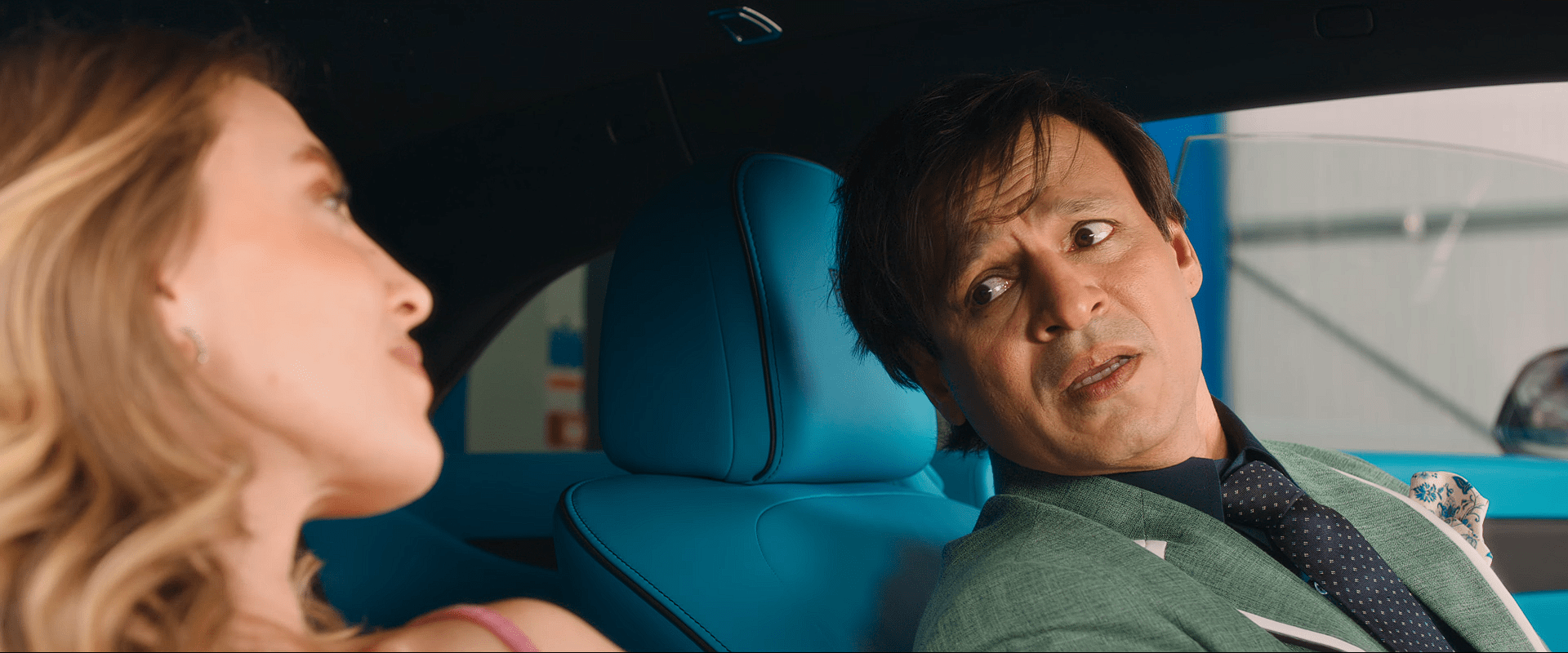
Execution Flaws: Editing, Sound Design, and Direction
Beyond writing and acting, the technical execution of Mastiii 4 suffers significantly. Editing feels inconsistent, and transitions between scenes lack rhythm. Sound effects appear haphazardly applied and often distract rather than enhance the comedic moments. The film stretches its limited narrative thin, relying on filler sequences such as recurring shots of feet, upward pans, and slow reveals that contribute nothing to story progression. These repeated stylistic choices, occurring at least five times in succession, signal a lack of creative direction.
The director of the film, Milap Zaveri, raises another concern altogether. Mastiii 4 released on 21 November, and just a month earlier, on 21 October, another film titled Ek Deewane Ki Deewaniyat – also directed by Zaveri – hit theatres. This proximity inevitably raises questions about production quality, time management, and the rushed nature of creative output. Two films releasing within one month under the same director cast doubt on the level of attention and craftsmanship invested in either.
A Personal Turning Point: When I Walk Out
Professional commitment usually ensures that I endure even the most unconvincing films in their entirety. Yet Mastiii 4 marked a rare moment in my life. After seven years of weekly theatre visits – excluding pandemic lockdowns – I felt, for the first time ever, a compulsion to walk out mid-screening. After a sleepless night spent finishing The Family Man S3, the fatigue mingled with the film’s lackluster execution became insurmountable. Even with only thirty minutes remaining, the film proved too unbearable for me to sit through.

This reaction, for me, signifies the widening gap between market-driven adult comedies and evolving audience expectations. The film, for all its attempts at provocation, fails to provoke anything beyond frustration.
The Bigger Picture: Who Is This Film For?
To place Mastiii 4 within its appropriate context, I must acknowledge that it is not a film targeted at all audiences. Its brand of exaggerated, serialized humor may resonate with viewers accustomed to television-style comedy, where slapstick setups, predictable punchlines, and repetitive beats remain common. Television serials continue to thrive in India because they cater to a specific and dedicated audience base, and Mastiii 4 aligns more closely with that sensibility than with contemporary cinema.
Therefore, while the film may find pockets of viewers who appreciate its tone and comedic pacing, it will likely alienate those seeking intelligently crafted humor, meaningful narratives, or evolved adult comedy.
Conclusion: A Franchise in Desperate Need of Reinvention
Mastiii 4 is a film trapped in its past, unable to adapt to the rapidly shifting landscape of Indian entertainment. Its reliance on outdated tropes, lazy humor, mechanical direction, and uninspired screenplay renders it ill-equipped for modern audiences. While adult comedies undeniably have a market, they demand creativity, refinement, and a willingness to evolve. Skin-show and crude jokes are no longer enough to sustain a full-length theatrical release.
The film attempts to entertain but ends up exemplifying the consequences of creative complacency. Recycled formulas, serial-style execution, and a disregard for cinematic craftsmanship make Mastiii 4 feel like a relic rather than a revival. Viewers who do not identify with daily-soap humor may find the film difficult – if not impossible – to endure.
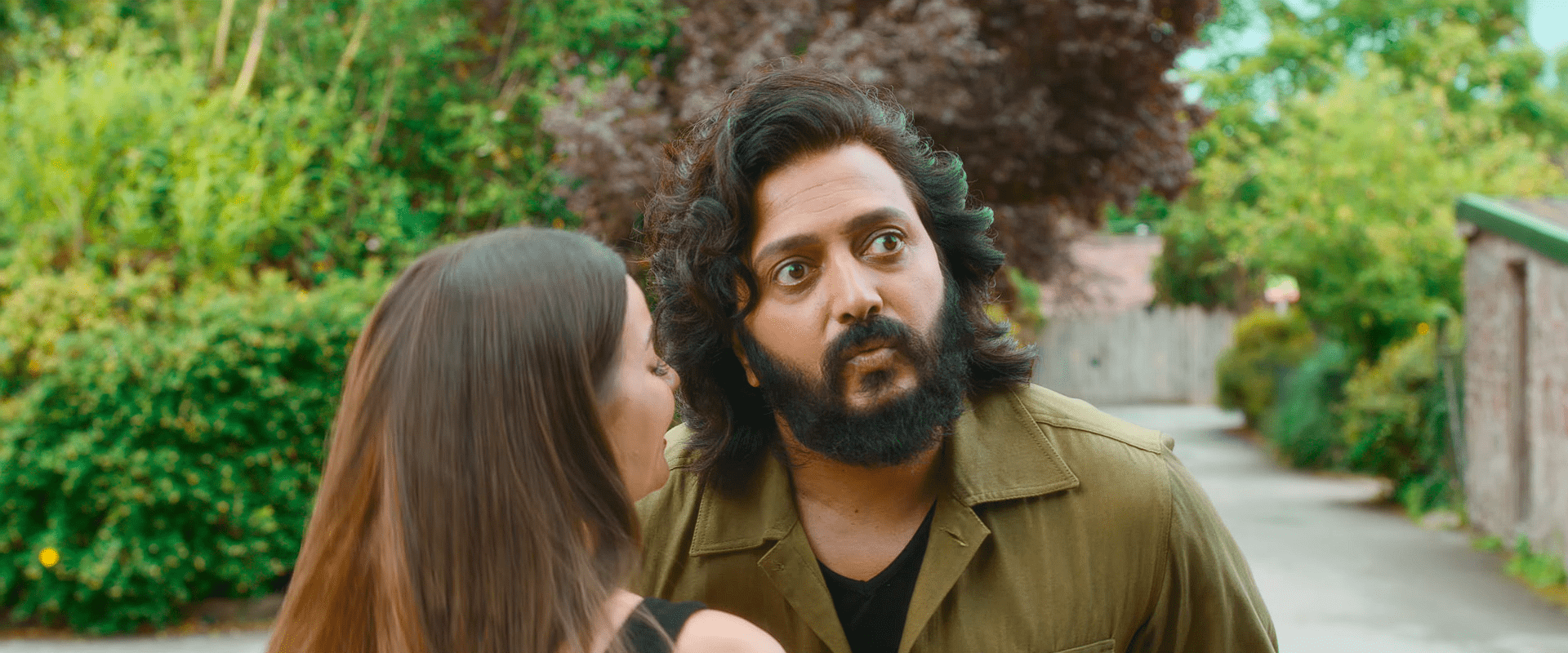
In the end, Mastiii 4 serves as a reminder to me that comedy, even in its boldest form, requires innovation. Without it, a franchise that once captivated teenage audiences becomes an echo of outdated entertainment, struggling to justify its existence in a world that has long moved forward.
Rating: 1/5
